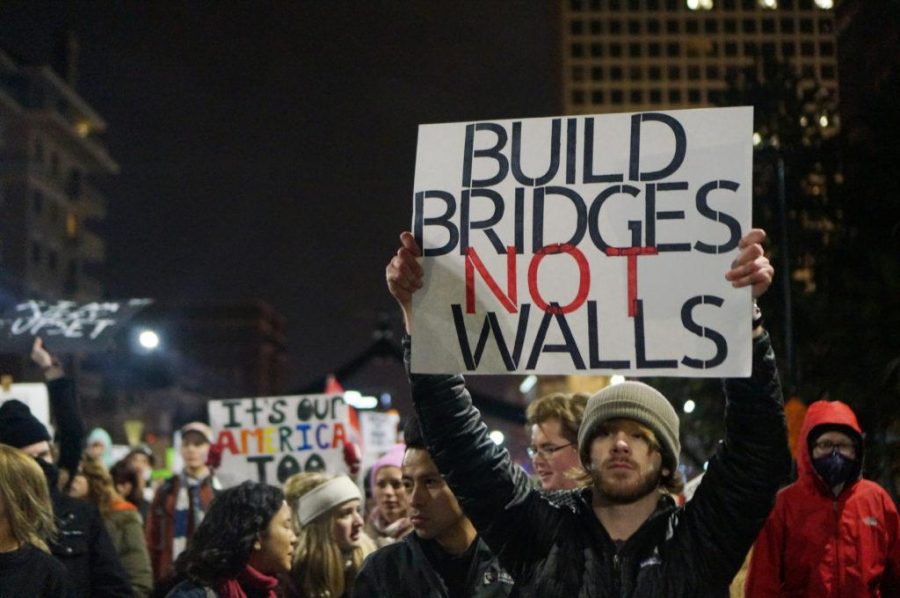It would be difficult to argue that any group has suffered under Donald Trump’s presidency more than immigrants.
In the speech at Trump Tower that launched his presidential campaign, Trump vowed to put a stop to “rapists” and “drug dealers” coming into the United States from Mexico. One of his first moves as President was to propose travel bans on people from certain — and seemingly arbitrarily selected — Muslim-majority countries. Last September, Trump announced he would be ending the Deferred Action for Childhood Arrivals (DACA) program, ending legal protections for an estimated 800,000 people in the U.S. who came here undocumented as children.
The most recent attack on immigrants started on Jan. 8 when the Trump administration said it would be ending the protected status of 200,000 El Salvadorans who came to the U.S. in 2001, fleeing a series of earthquakes.
Days later, meeting with lawmakers to discuss immigration policy, Trump allegedly asked why the U.S. is allowing people from “shithole” countries to come here, referring to El Salvador, Haiti and other Latin American and African countries. Instead, the president is said to have suggested, shouldn’t we have more people from countries such as Norway?
Trump’s comments, which he denies making, were quickly and rightfully condemned for being racist, xenophobic and unpresidential. On Twitter, Utah Republican Rep. Mia Love wrote, “The president’s comments are unkind, divisive, elitist and fly in the face of our nation’s values. This behavior is unacceptable for the leader of our nation.”
Love added that the statement hurt her personally. “My parents came from one of those countries … they worked hard, paid taxes, and rose from nothing to provide opportunities for their children. They taught their children to do the same. That’s the American Dream.”
Rep. John Curtis, who recently replaced Jason Chaffetz as Utah’s 3rd district congressman, wrote that he was “dismayed at the reported remarks from the President. … It’s what you do when you get here not where you come from that makes us a great and united nation.”
Reactions from citizens in Utah were equally as strong. On Jan. 15, a protest was held at the Utah State Capitol to condemn Trump’s comments and to defend Utah immigrants. A few dozen people attended this “Rally Against Racism in the White House,” according to The Salt Lake Tribune.
While Utah’s people and political leaders have rightfully condemned the president for his racist and revolting remarks, many Utahns are still attracted to Trump. A recent poll found that 61 percent of Mormons approve of Trump’s job as president, higher than any other religious group.
Trump’s decision to end protected status for El Salvadorans will affect 1,600 Salvadorans in Utah, according to data from the Center for American Progress.
As pointed out by Raymond Bonner in The Atlantic, natural disasters are not the only thing that has devastated countries like El Salvador. Bonner noted that the U.S.-driven Salvadoran Civil War displaced tens of thousands of Salvadorans and caused them to flee to the U.S. In the 90s, Clinton allowed their protected status to expire.
“Thousands of the refugees sent back were young men, who had either deserted from the army or the guerrillas during the war,” Bonner wrote. “And when they got back to El Salvador, with little beyond their fighting skills, they formed the nucleus of the gangs.”
Bonner concluded, “Given America’s history in El Salvador, one might think the United States owes the country’s citizens an apology, rather than disparaging epithets.”
In a similar vein, one might think there’s a lot of Mormons in Utah who owe the state’s 1,600 Salvadorans an apology for giving the president such a high approval rating.
letters@ustudentmedia.com
@TheChrony


